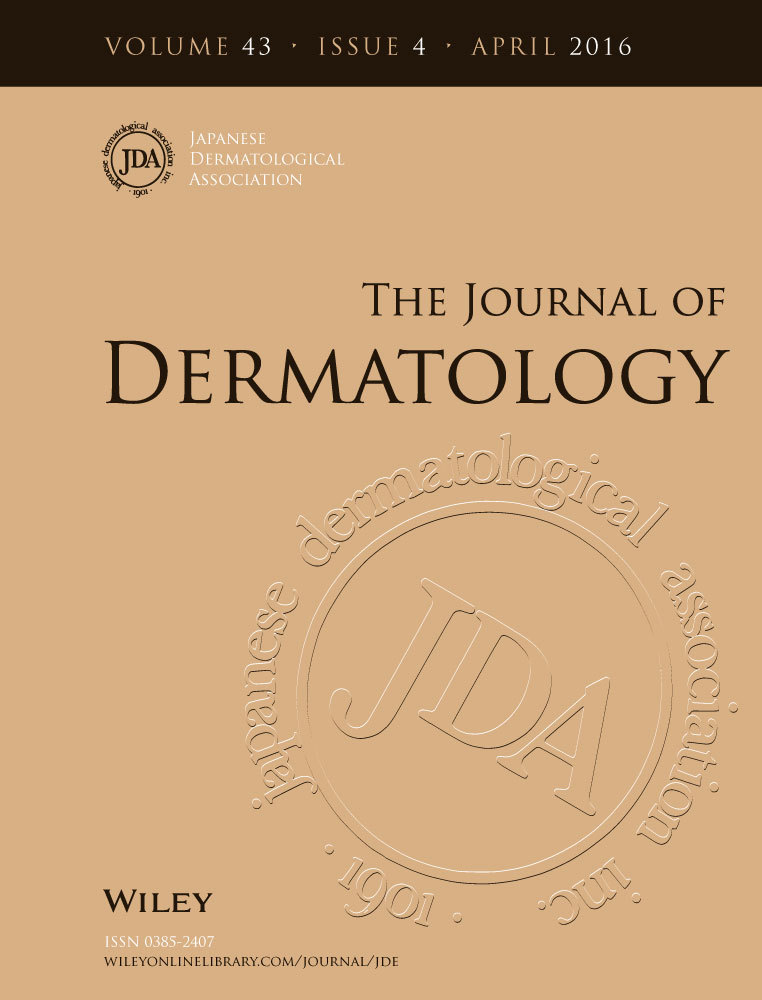Multicenter cross-sectional observational study of antibiotic resistance and the genotypes of Propionibacterium acnes isolated from Chinese patients with acne vulgaris
Abstract
Antibiotics are widely applied in management of acne vulgaris, which raises the issue of antibiotic resistance. Due to improper application and supervision of antibiotics, antibiotic resistance has become a serious problem in China. So, the efficacy of antimicrobial therapy in acne is unclear without an objective monitor of antibiotic resistance of Propionibacterium acnes. This cross-sectional, multicenter observational study is aimed at understanding the status of antibiotic resistance in P. acnes, investigating the measures of acne management in China and analyzing the genotypes of antibiotic-resistant strains of P. acnes. Altogether, 312 strains of P. acnes were collected from patients in five medical centers across central China after reviewing the corresponding medical history in detail. The samples underwent antibiotic susceptibility assays by agar dilution method with a total of 11 classes of antibiotics being tested. The antibiotic-resistant strains were screened and further analyzed by investigation of the genotypes regarding 23S rRNA, 16S rRNA and erm(X). The predominant resistance occurred in macrolides and lincomycin with an overall resistance rate of 47.8%. The resistance to tetracyclines was scarce with only two cases identified. The emergence of minimum inhibitory concentration elevation for tetracyclines is associated with its application history (P < 0.005). The genotypes of the reported macrolide–lincosamide–streptogramin B resistance strains were also spotted in Chinese subjects while other resistance determinants may also exist. The tetracyclines have been proved to be vastly susceptible while macrolides and lincomycin face a serious resistance status in China.




